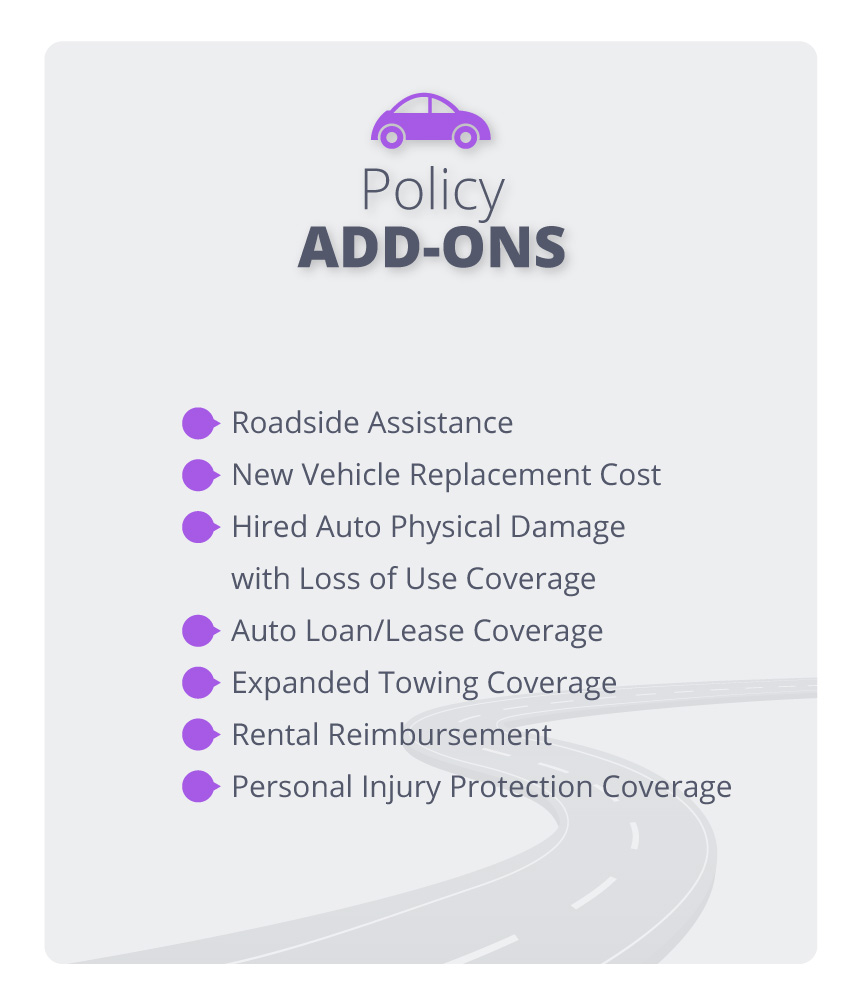
Commercial auto insurance in Oregon
Commercial auto insurance covers legal fees and other expenses if a business-owned vehicle is involved in an accident. It's required for all commercial vehicles in Oregon.
Who needs a commercial auto insurance policy in Oregon?
Any Oregon company that uses vehicles for business purposes must insure them appropriately.
Commercial auto insurance covers vehicles owned by your business. If your business-owned vehicle was involved in an accident, it would help pay for medical bills, legal fees, and other related expenses.
Any vehicles you own solely for work purposes must be covered by a commercial auto policy, whether you own a landscaping pickup, a food truck, or a fleet of company cars.
A business auto policy is more extensive than a standard commercial auto insurance policy. It covers all vehicles used by a business, whether they’re owned by the company, leased, or owned by employees.
What if I use my personal vehicle for work?
If you’re using your own vehicle for work-specific activities, your personal auto policy wouldn’t cover you in the case of an accident. That’s why many small business owners purchase hired and non-owned auto insurance (HNOA). This policy covers accidents involving personal, leased, and rented vehicles used for work purposes.
Your personal auto insurance policy covers you while driving to and from work, but not while making deliveries, picking up supplies, and other work-specific uses.
For example, if you or an employee gets into an accident while driving a personal car for a work errand or traveling to a job site, your HNOA coverage would help pay for any claims or lawsuits against your business.
It's worth noting that this type of insurance would not cover damage to the vehicle used by your business.
Why is commercial auto insurance important?
Your business could be in legal and financial jeopardy without commercial auto insurance coverage. In Oregon, all vehicles are required to carry auto liability insurance.
If one of your business vehicles is at fault in an accident, you could face an expensive lawsuit or settlement. You’d likely have to pay for damage to the other vehicle or property, medical costs, lost wages, pain and suffering, plus other related expenses.
Additionally, you could face severe penalties for not carrying auto insurance. Driving without insurance in Oregon is a Class B traffic violation with a minimum fine of $135 and a maximum fine of $1,000. If you get into an accident while uninsured, your driving privileges could be suspended.

How does commercial vehicle insurance work in Oregon?
From Portland to Eugene, all vehicles in the state of Oregon are required to carry auto liability insurance coverage, whether they’re for personal or business use. Oregon’s minimum insurance requirements are:
- Bodily injury liability: $25,000 per person / $50,000 per accident
- Property damage liability: $20,000 per accident
- Uninsured motorist coverage: $25,000 per person / $50,000 per accident
- Personal injury protection (PIP): $15,000
Your insurance agency might recommend higher limits based on the types of vehicles you own and how they’re used.
Semi-trucks, utility and cargo trailers, and other vehicles with an Oregon Department of Transportation serial number will have additional liability and damage coverage requirements, depending on the type of vehicle and how it’s used.
You can see if your business needs these additional requirements by checking your USDOT number or docket number with the Federal Motor Carrier Safety Administration.
How much does commercial car insurance cost?

Commercial auto insurance costs an average of $107 per month for Oregon small businesses. 37% of Insureon small business customers pay less than $100 per month for their policies.
Insurance carriers look at several factors when calculating your cost, including:
- Number of vehicles
- Vehicle type and value
- Level of risk involved
- Claims history
- Employee driving records
- Policy limits and deductible
What our customers are saying
What else does commercial auto insurance cover?
While every Oregon business owner must meet the minimum requirements for business auto insurance, this mandate only applies to liability coverage. This can protect you if one of your vehicles causes an accident, but it does not insure you against a mishap caused by someone else.
It’s worth considering these other commercial auto coverage options to make sure you’re fully protected:
- Uninsured/underinsured motorist coverage insures you against personal injuries and damage involving a company vehicle, in case whomever caused the accident is unable to cover the full cost of damages.
- Medical payments coverage pays for medical expenses if employees and passengers are injured in a company-owned vehicle, regardless of who is at fault.
- Collision coverage helps pay for the cost of repairing or replacing your company vehicle if it’s damaged in an accident, regardless of who was at fault.
- Comprehensive coverage covers the costs of non-collision damages such as vandalism, theft, flood, or fire.
- Towing and labor coverage covers the cost of roadside assistance for company-owned vehicles.
- Loading and unloading coverage insures against the damage of equipment and materials during transport, loading, or unloading.
- Bobtail coverage is recommended when you’re using tractors without a trailer. It usually covers the insured vehicle at all times, even during non-work-related uses.

Get free auto insurance quotes and buy online with Insureon
Insureon makes it easy for business owners to get quotes for Oregon commercial auto insurance. Complete our easy online application to review quotes specific to your type of business and industry from leading U.S. insurance companies. You can speak with an insurance agent for more information on which types of insurance and add-ons are right for you.
Once you find the best auto insurance policy for your insurance needs and budget, you can begin coverage and receive a certificate of insurance in less than 24 hours.
